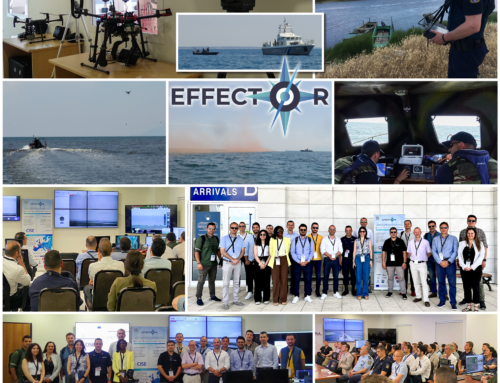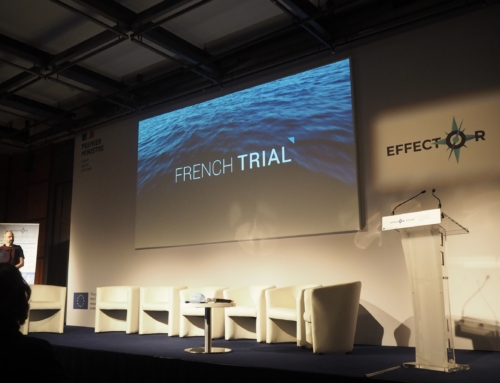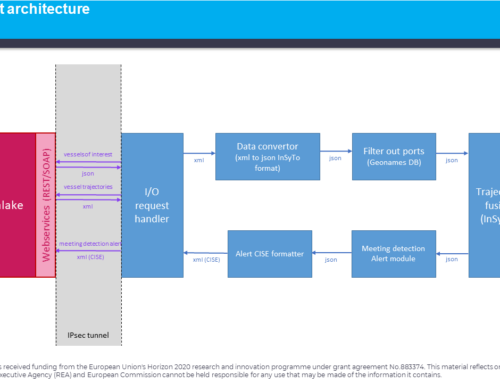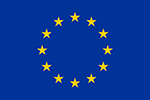Author: INOV
The first EFFECTOR workshop took place at the end of May 2021 during which the consortium met external audiences to present EFFECTOR, to collect their feedback on the project’s approach to maritime surveillance awareness, the work developed, and results achieved during the first half of the project.
In an 18-month project, it was important for the project partners to reflect on the work and results from the initial project’s work packages (WPs), and give them a showcasing platform. This was the EFFECTOR workshop: where end-users, participants from academia and industry organizations were able to analyze the proposed solutions and give their feedback to help EFFECTOR validate the proposed approach and adjust where necessary.
Around 100 representatives of end-users, authority and government entities, companies, research and technology organisation and academia/universities participated in the workshop held virtually via Zoom. The partners shared the results achieved and collected feedback to help guide the project’s approach during the last leg of the project.
When asked whether the system components covered the needs, 73% of participants considered that the proposed architecture seemed to answer the requirements of a maritime surveillance awareness system. The objectives of having semantically enabled data lakes, data fusion and analytics are considered “very well” or “completely” taken into account by 61% of the respondents and 65% of the respondents considered that the technology of the architecture components might improve “very much” or “completely” the maritime surveillance scenario. The participants saw value in the EFFECTOR approach to improve data processing and fusion, sharing and integration of information through innovative technologies, enhancing results on abnormal behaviour and sharing alerts among different levels of command, and by helping better manage human resources.
Pursuing System Interoperability
Since the early stages of the project, it was very important for the consortium to identify the end-user needs and pinpoint the technical requirements to be considered in the EFFECTOR system. This was carried out, firstly, in the activities dedicated to Operational Analysis, User and System Requirements.
This was the basis for carrying out the Overall Design, Architecture & Interoperability Framework and the EFFECTOR System Adaptation, Configuration and Integration. In the workshop, the partners presented the building blocks proposed to achieve the interoperability needed for a maritime surveillance awareness system.
System & Semantically-enabled Data Lakes
The EFFECTOR Data Lake will be multi-layered, deployed in the three national coordination centers, France, Portugal and Greece following common guidelines. Each national Data Lake will consist of a core data lake and logical data lakes in order to support regional and local information and surveillance systems and data sources. The EFFECTOR Data Lake ecosystem will interconnect Big Data Open Source technologies that will make possible to Extract, Transform and Load (ETL), aiming to:
- Support the most common standards for strategic and tactical information exchanges;
- Support Big Data using the latest advances in big data platforms, data aggregation, processing, storage and distribution;
- Support data exploitation for enhanced contextual knowledge extraction, multi-level data fusion, semantics, and analytics for improved decision support.
Heterogeneous Data Sources
The EFFECTOR Data Lake will ingest, cleanse and aggregate heterogeneous data, store and collect raw data and metadata, while maintaining the modularity of the EFFECTOR architecture at local, regional and national levels. The algorithms will refresh data automatically and clean or reshape the data to ensure Data Quality and avoid redundancies. Although a data harmonization layer will facilitate the integration of heterogeneous data sources by supporting different interoperability standards (formats and communication protocols), there is still a need to transform data for uniform processing. The system will apply a normalization and harmonization step for data (and/or clusters of data) to ensure this.
Interoperability & information exchange
Efficient combination, processing and information sharing of multiple sources and types of information are required to achieve a rule-based enhanced maritime surveillance picture for better decision support and improved collaboration. To achieve the integration and operation of various surveillance data sources and decision support systems, different data formats, communication protocols and data exchange mechanisms need to be managed and controlled in a comprehensive manner where interoperability standards play a crucial role. Therefore, the EFFECTOR approach aims at:
- Implementing a multilayered data lake platform for end-to-end interoperability and data exploitation to facilitate the seamless integration of maritime surveillance;
- Enabling the sharing of an enhanced situational awareness at local, regional and national level and with CISE and EUROSUR based on shared, transparent and rule-based good governance;
- Implementing a data harmonization layer, adopting interoperability standards and proposing standards where necessary, for exploiting data sources and systems currently underutilized;
- Demonstrating new concepts and tools for knowledge extraction, semantic representation, data fusion, analytics, and federated querying that can scale from local to regional and up to national and transnational level.
Unlocking Innovation Potential
EFFECTOR adopts a strategy to deliver technology aligned to the market needs in maritime surveillance awareness, by engaging with end-users from the early stages of the project, and hence, ensuring that the project develops solutions with real needs in mind and considering the gaps and challenges currently identified in maritime surveillance.
This is based in the design of use-cases, in collaboration with the end-users participating in the project, to identify the users’ profiles: the tasks, problems, challenges dealt with, and their experiences with those operations – both negative and positive – in order to propose technological solutions to solve them or improve them.
At EFFECTOR, this is accomplished in close collaboration with the end-users involved in the project, but also through broader activities – like the workshops – to reach more end-users and collect their input. This is crucial for the development of research and Innovation as an opportunity to share progress and results, but most importantly to engage with potential beneficiaries and promote the uptake of results beyond the project.







